Nestled in the picturesque Connecticut River Valley, the history of Deerfield, Massachusetts, is a tapestry woven with threads of resilience, conflict, and cultural exchange.
Deerfield has played a pivotal role in shaping the narrative of New England’s past from its earliest days as a colonial outpost to its present-day role as a living museum of American history.
With a legacy marked by colonial settlement, indigenous resistance, and the trials of war and conquest, Deerfield stands as a testament to the enduring spirit of its inhabitants and the complexities of early American life.
Exploring the history of Deerfield offers a captivating journey through time, revealing the triumphs and tragedies that have shaped this historic town.
History Of Deerfield, Massachusetts
Deerfield is a town in Franklin County, Massachusetts, United States. It was founded in 1673 and incorporated in 1677. The city has a rich and diverse history, from the Native American era to the present day.
Here are seven historical evidence of Deerfield’s past:
The Pocumtuck Indians
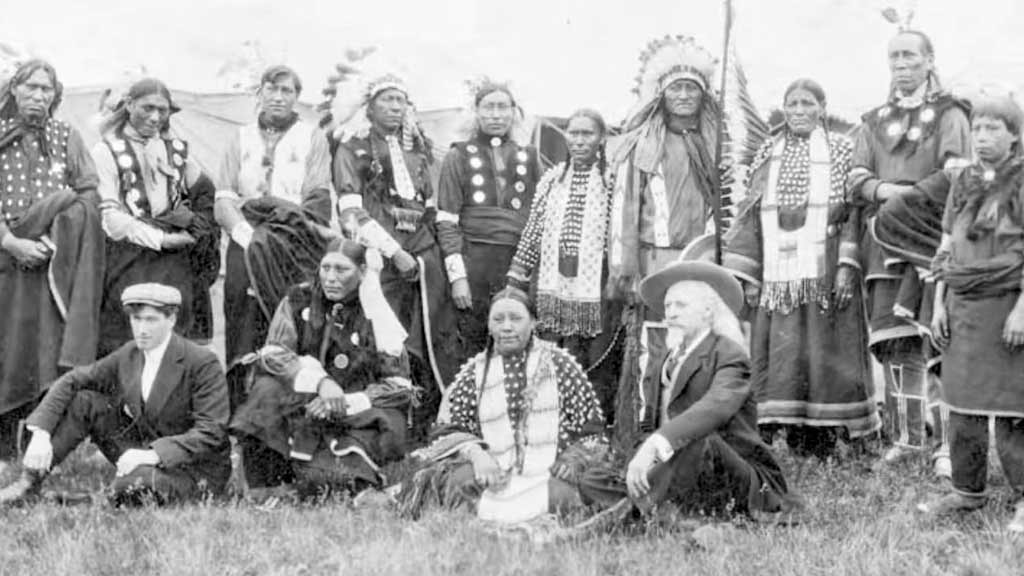
These were the original inhabitants of the land that became Deerfield. They were part of the Algonquian language group and lived in villages along the Connecticut River.
They cultivated corn, beans, and squash, hunted, and fished for food. They also traded with other tribes and Europeans. They were involved in several wars, including King Philip’s War, the French and Indian War, and the American Revolution.
The Deerfield Massacre
This was a raid by a coalition of French and Native American forces on the English settlement of Deerfield in 1704. The raid was part of Queen Anne’s War, a conflict between France and England over colonial territories.
The raiders attacked the town at dawn, killing 56 people, wounding 22, and taking 112 captive.
The captives were marched to Canada, where some were ransomed, adopted, or killed. The raid was one of the most notorious events in colonial history.
The Bloody Brook Monument
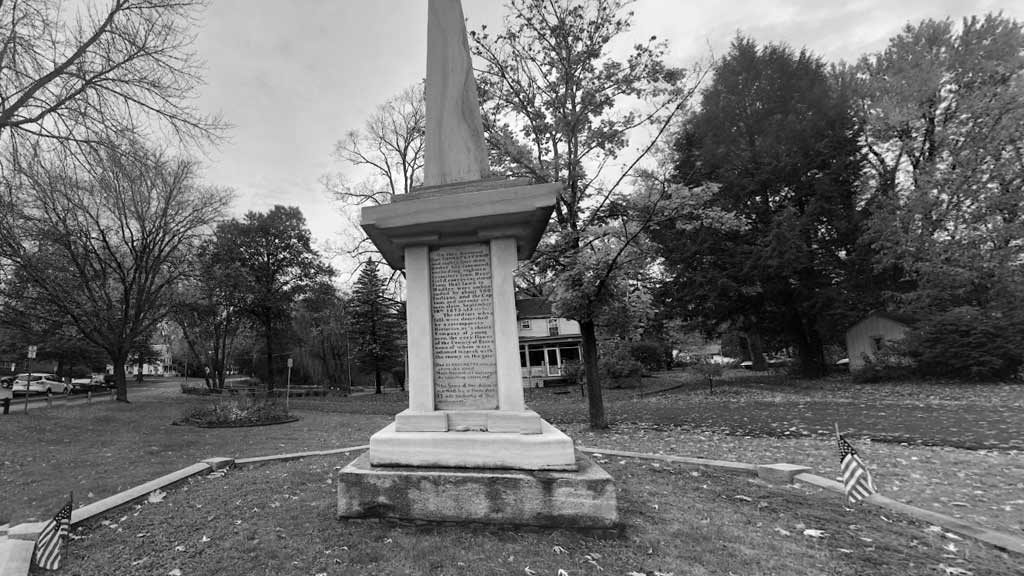
This memorial marks the site of a battle between the English colonists and the Native Americans in 1675. The battle was part of King Philip’s War, a rebellion by the Wampanoag chief Metacom, also known as King Philip, against the English expansion and oppression.
The battle occurred near a brook where the colonists were ambushed by the natives, who killed about 70 of them.
The brook was named Bloody Brook for the blood that stained the water. The monument was erected in 1838 by the Pocumtuck Valley Memorial Association.
The Old Deerfield Village
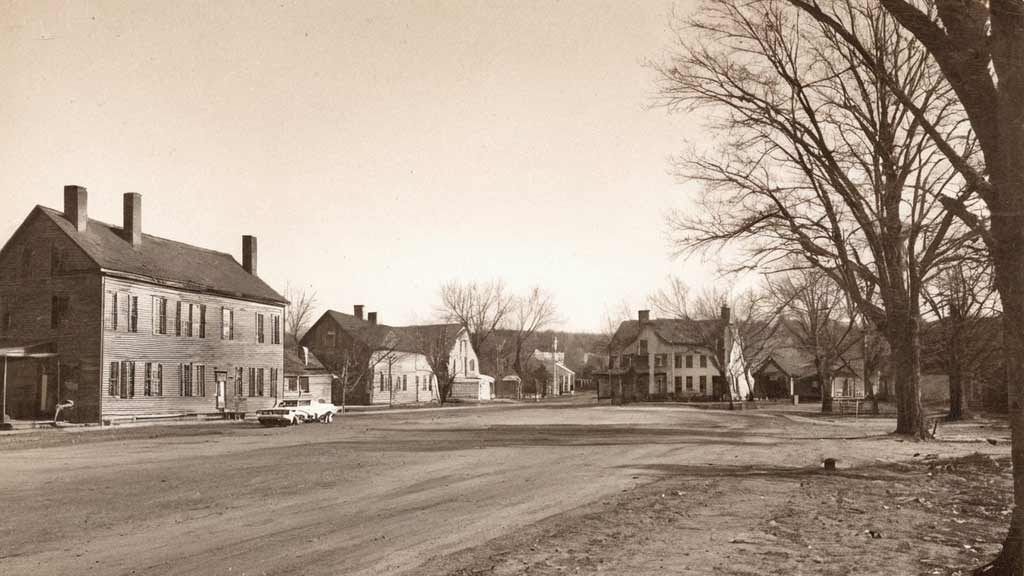
This is a historic district that preserves and showcases the colonial and early American heritage of Deerfield. The district contains about 50 buildings, most dating from the 18th and 19th centuries.
The buildings include houses, churches, schools, shops, and museums. The district also hosts various events and programs, such as the Deerfield Fair, the Historic Deerfield Academy, and the Deerfield Craft Fair.
The Memorial Hall Museum
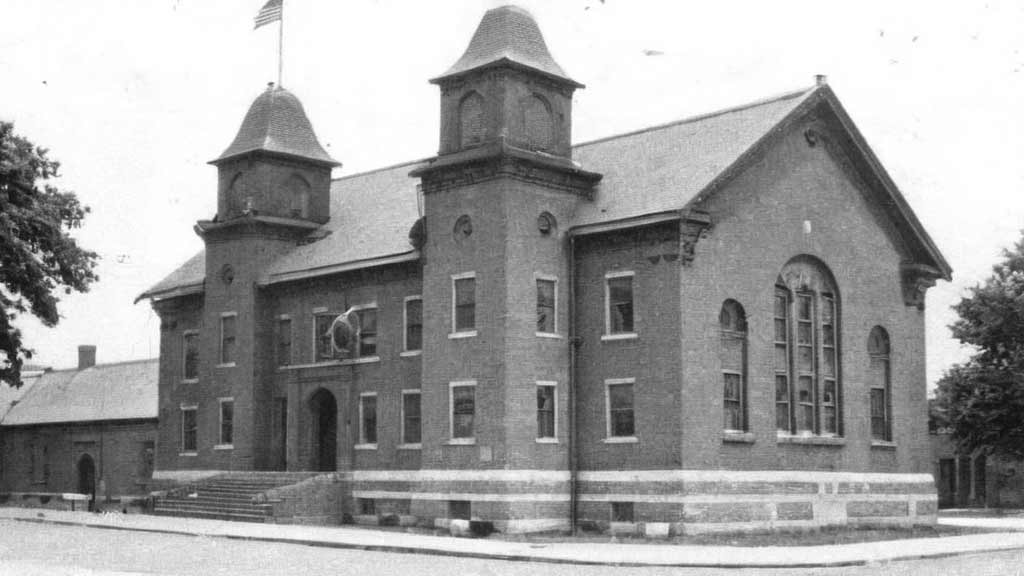
This museum displays and interprets the history and culture of Deerfield and the Connecticut River Valley. The museum was established in 1880 by historian and antiquarian George Sheldon.
The museum is housed in a former town hall built in 1798. The museum has a collection of over 25,000 artifacts, including furniture, textiles, pottery, paintings, weapons, and tools. The museum also has a research library, a genealogy center, and a gift shop.
The Deerfield River
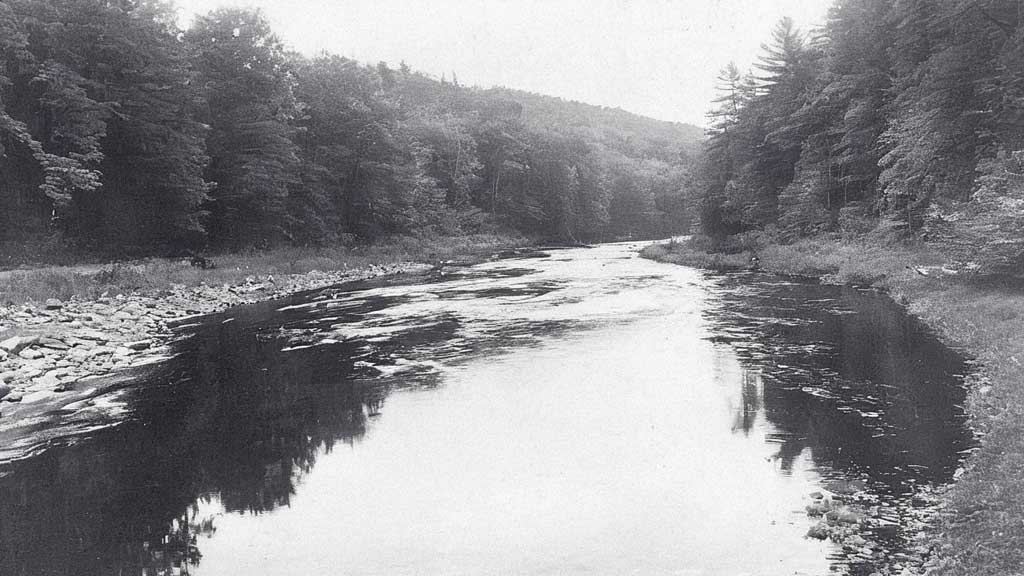
This river flows through the town of Deerfield and joins the Connecticut River. The river is about 76 miles long and has a drainage area of about 665 square miles.
The river also supports various fish and wildlife species, such as trout, salmon, beaver, and bald eagle.
Who Were The Settlers Of Deerfield, Massachusetts?
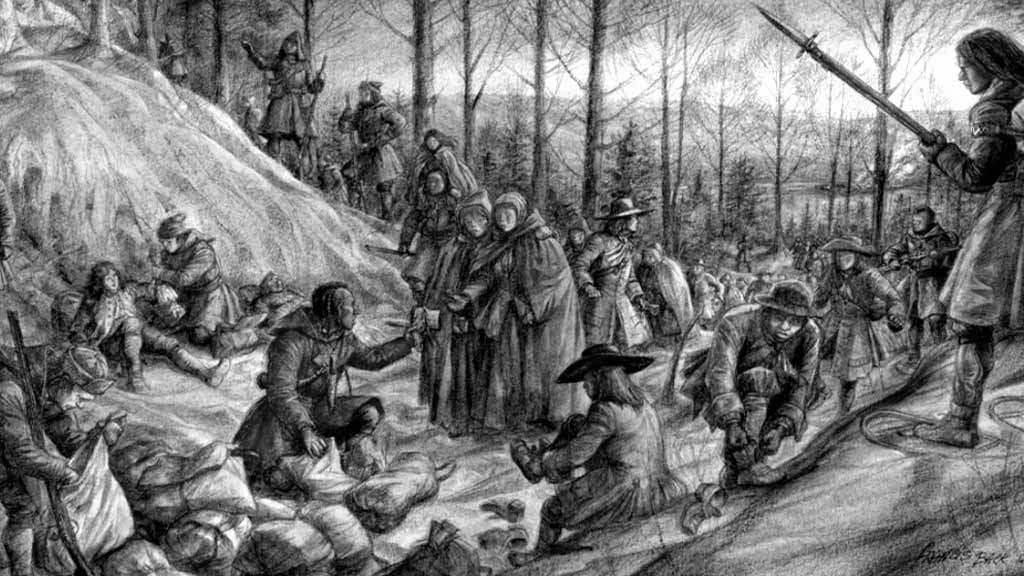
The settlers of Deerfield, Massachusetts, primarily consisted of English colonists who arrived in the late 17th century, seeking new opportunities and religious freedom in the New World.
Originally inhabited by Native American tribes, such as the Pocumtuc, the area was gradually settled by English pioneers in the 1670s.
These settlers faced challenges, including conflicts with indigenous peoples and the harsh New England environment.
Despite these difficulties, Deerfield grew into a thriving agricultural community known for its fertile soil and abundant resources.
Over time, the town became a center for trade and commerce, playing a significant role in the economic development of colonial Massachusetts.
Today, Deerfield stands as a testament to the perseverance and resilience of its early settlers, with its historic landmarks and museums preserving the legacy of its founding families.
Why Is Deerfield Massachusetts Historic?
Deerfield, Massachusetts, holds a significant place in American history due to several pivotal events that shaped its development and influenced the broader narrative of colonial New England.
Deerfield’s history is rich with historical significance, from early settlement to the tumultuous times of conflict and cultural exchange.
Pocumtuc Conflict (1675)
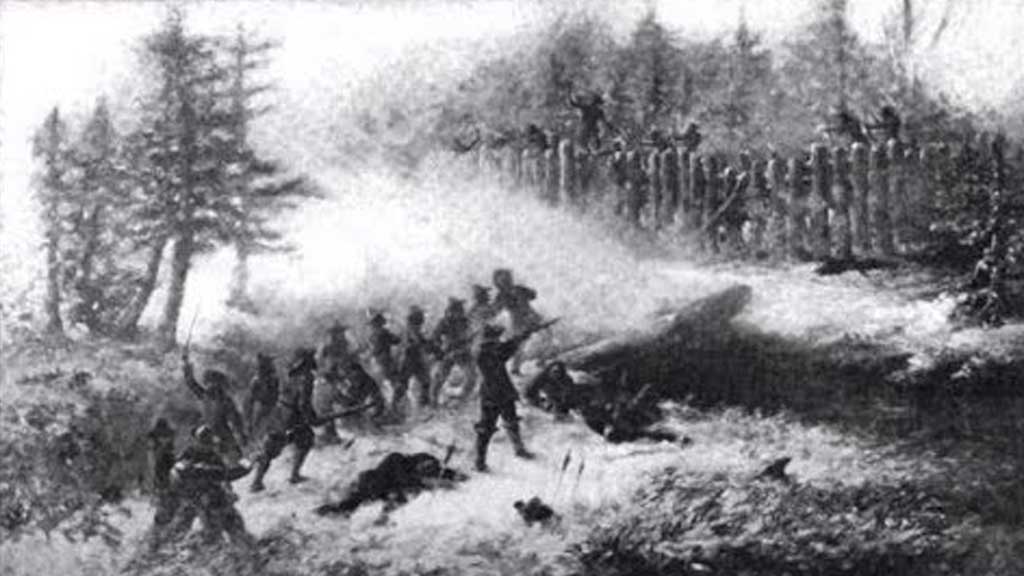
In 1675, tensions between English settlers and the indigenous Pocumtuc tribe erupted into violence, leading to the conflict known as King Philip’s War.
The Pocumtuc, along with other Native American allies, attacked English settlements, including Deerfield, in retaliation for encroachment on their lands.
Deerfield Raid (1704)
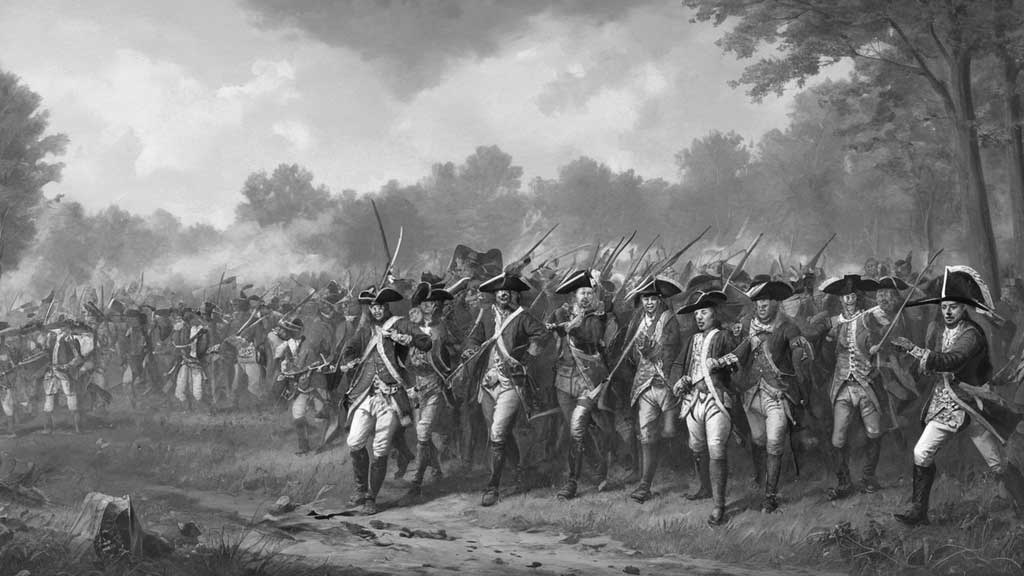
One of the most infamous events in Deerfield’s history is the Deerfield Raid of 1704, also known as the Deerfield Massacre.
During Queen Anne’s War, French and Native American forces attacked the town, resulting in the deaths of dozens of settlers and the capture of over 100 residents.
Fortification and Colonial Expansion
In response to ongoing threats from indigenous tribes and rival European powers, Deerfield fortified itself with a palisade and became an essential outpost for colonial expansion into the Connecticut River Valley.
French and Indian War (1754-1763)
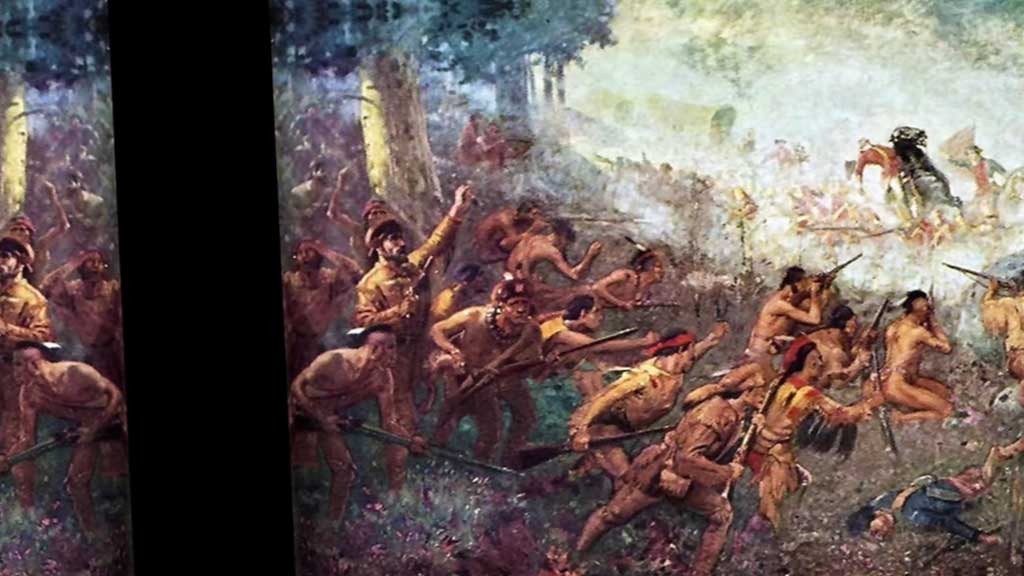
Deerfield played a strategic role during the French and Indian War as a supply depot and military staging area for British forces operating in the region. The conflict further solidified the town’s importance in the colonial defense network.
American Revolution (1775-1783)
Deerfield contributed troops and resources to the patriot cause during the American Revolution. The town’s residents played active roles in critical battles and skirmishes, including the pivotal Battle of Bennington in nearby Vermont.
Post-Revolutionary Era and Industrialization
Following the Revolution, Deerfield experienced economic growth and industrialization, with the development of mills along the Deerfield River contributing to the town’s prosperity and shaping its landscape.
Preservation and Cultural Heritage
Deerfield has become known in the 20th and 21st centuries for its commitment to preserving its historic buildings and cultural heritage.
The town boasts numerous museums, historic sites, and educational programs that showcase its colonial past and engage visitors in exploring American history.
Deerfield’s historical significance lies in its events and the collective story it tells of resilience, conflict, and cultural exchange in colonial America.
Through its preservation efforts and ongoing engagement with its past, Deerfield continues to be a living testament to the complexities of early American history.
FAQs
How did Deerfield contribute to colonial expansion?
Deerfield served as an essential outpost for colonial expansion into the Connecticut River Valley, with its fortified settlement providing security for settlers and facilitating trade in the region.
What was the Deerfield Raid of 1704?
The Deerfield Raid, also known as the Deerfield Massacre, was a devastating attack on the town by French and Native American forces during Queen Anne’s War, resulting in casualties and captives.
How did Deerfield participate in the American Revolution?
During the American Revolution, Deerfield contributed troops and resources to the patriot cause, playing a role in critical battles and skirmishes in the region.
What is Deerfield’s legacy in the post-Revolutionary era?
After the Revolution, Deerfield experienced economic growth and industrialization, with the development of mills along the Deerfield River contributing to its prosperity.
How does Deerfield preserve its history today?
Deerfield preserves its history through museums, historic sites, and educational programs that showcase its colonial past and engage visitors in exploring American history.
Conclusion
The history of Deerfield, Massachusetts, is a microcosm of the broader story of colonial America, characterized by resilience, conflict, and cultural exchange.
From the challenges of early settlement to the tumultuous events of war and conquest, Deerfield’s past is a testament to the perseverance and resilience of its inhabitants.
Deerfield’s historic landmarks, museums, and educational programs continue to preserve and interpret its rich heritage, inviting visitors to explore and engage with the town’s fascinating history.
As Deerfield looks to the future, it does so with a deep appreciation for its past and a commitment to ensuring that its legacy endures for future generations.
Jaclyn Lowe